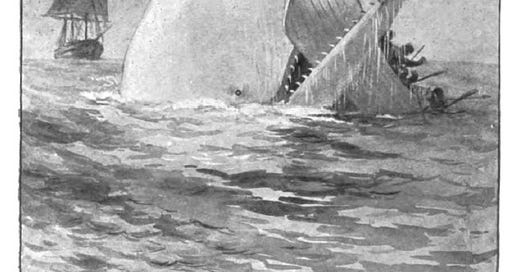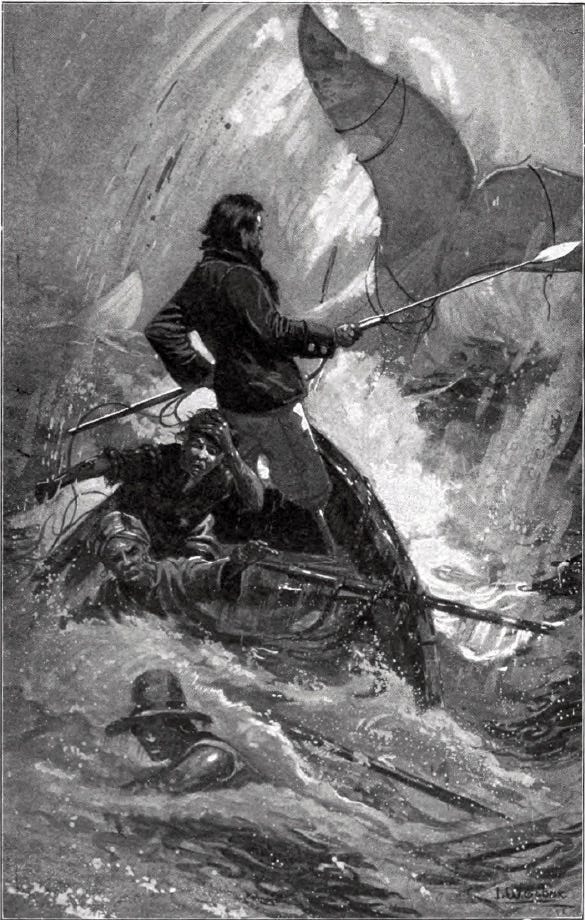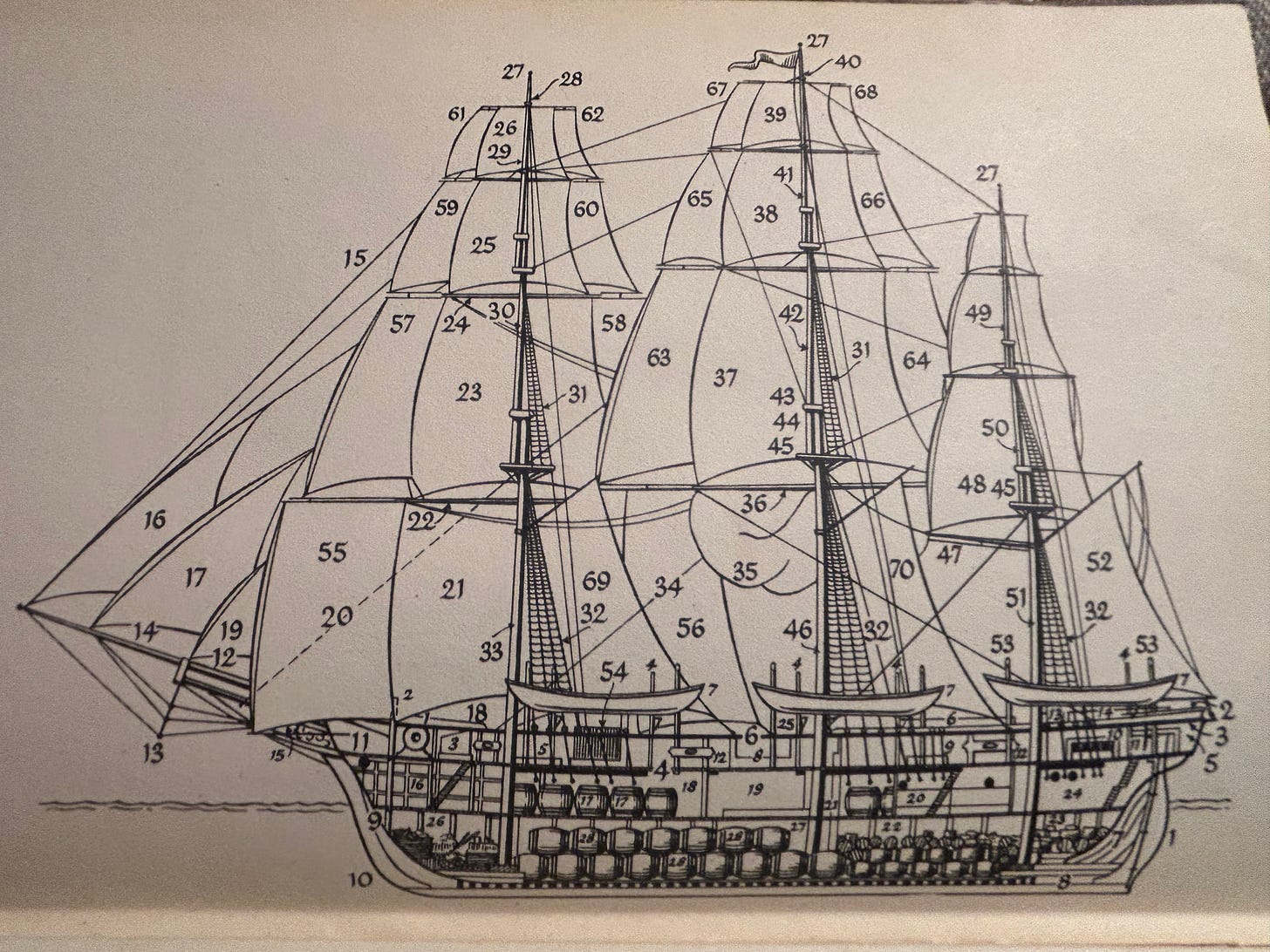White Whale, Black Piano, Grey Wolf
Thoughts on leaving Europe
What the white whale was to Ahab has been hinted; what, at times, he was to me, as yet remains unsaid.
The opening words of Chapter 42 of Moby Dick by Herman Melville.
Augustus Burnham Shute - Public domain
What does the White Whale mean to us, in these strange, bewildering times? The horrors outside, or inside ourselves? Or our own vast undefined hope and happiness? All these words beginning with the letter ‘h’. Whatever stirs us to get out of bed, and begin another day.
Lou Reed sang about The Last Great American Whale:
https://youtu.be/xTlsSXNT2bg?si=iK3l4gdNffPoWUpu
I’m writing this on my way to Peru. I remember travelling, aged 20, with my sister Mish over the Atlas Mountains in Algeria, in the cab of a truck which picked us up on the outskirts of Blida. The Atlas Mountains glowed red all around us. At sunset, red shepherds leant on their long red staffs, to herd their red sheep out of sight between the dark folds of the mountains. As we crossed the last pass, and started the long descent, down into the Sahara desert, I felt a huge relief. To be finally leaving Europe behind, to enter the vastness of Africa. Mountains and deserts and oceans do that to us.
Call me Ishmael. Some years ago--never mind how long precisely--having little or no money in my purse, and nothing particular to interest me on shore, I thought I would sail about a little and see the watery part of the world. (Moby Dick. Chapter 1).
When I set out to walk the Carpathian Mountains for my new book, I imagined not a white whale but rather a grand piano. The keys were the rivers, both black and white - the Morva, Hron, Váh, Ipel’, Hornad, Uzh…
Tisza, Maros, Szamos, Olt, Küküllö…
There’s a beautiful poem by the Hungarian poet, Endre Ady called the Black Piano:
On this mad instrument
which neighs, and bleats and mimes
Away with you, unless you have some wine!
This is the black piano:
The blind master teases, tumbles down the keys,
life's bitter melodies:
the black piano.
My spinning head, my tearful eyes,
the wrestler’s restlessness of my desires,
this is the black piano.
My drunkard’s heart pumps blood
In drumbeats with the flood:
the black piano.
(My version of Adam Makkai’s translation. The original Hungarian is here: https://magyar-irodalom.elte.hu/sulinet/igyjo/setup/portrek/ady/fekzong.htm)
It would be a shame to end this meditation on basic colours - white and black and red, the colours of the Syrian flag - without mentioning Grey. The Hungarian writer George Konrad once called Hungary’s last Communist leader, János Kádár, ‘the Grey King on the chessboard.’
In 1987. Fortepan / Fortepan/Album059
There was a story about Kádár, probably apocryphal, according to which, as a young Communist activist in German-occupied Hungary in 1944, he evaded arrest by walking all the way from Györ to Budapest with a heavy log on his shoulder. The police patrols didn’t think to trouble a lad with such a load, who was obviously just going round the corner.
Spare a thought for all our wretched leaders at this time. I wouldn’t wish political power on anyone. Out here on the perimeter, as Jim Morrison sang, we are more free.
https://youtu.be/61sxabqObNc?si=PQW6pKFNcvfB-6pU
Last week on the BBC radio programme Rare Earth, we talked about the Grey Wolf. You can find the whole episode here:
https://www.bbc.co.uk/sounds/play/m0028l2k
My own contribution begins around the 33rd minute.
And finally, here’s a painting by Menyhert Tóth, called ‘Európa.’
https://www.jakycollection.hu/mualkotas/toth-menyhert-europa/
Tóth was the archetypal painter of ‘whiteness.’
Look after yourselves in this marvelous, monstrous world.
Next post from Peru!








